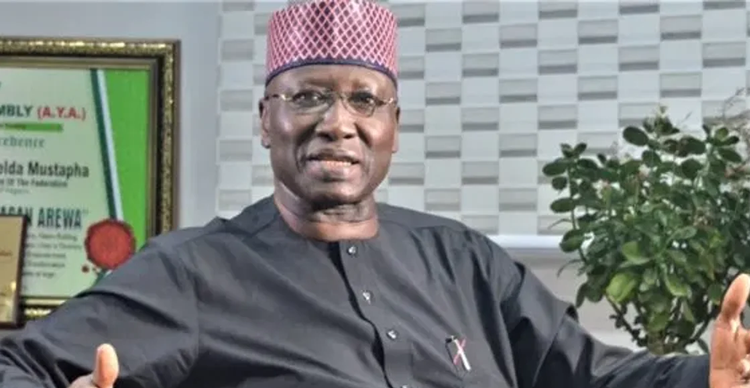The federal government yesterday admitted that Nigeria has spent more money on fuel subsidy than the entire budget for health, education, agriculture, and defence in the last five years, and almost the capital expenditure for 10 years.
The government also acknowledged that the cost of subsidy on petrol between year 2005 to 2021 could be more than N13 trillion ($74 billion) if the economic and opportunity costs of the policy are computed in financial terms.
The Secretary to the Government of the Federation (SGF), Mr Boss Mustapha, yesterday, disclosed that fuel subsidy payouts from 2005-2021, representing a 16-year window, have cost the federal government a whopping N13 trillion on a conservative estimate.
Speaking during the launch of the Nigeria Extractive Industries Transparency Initiative (NEITI), strategic plan 2022-2026, in Abuja, Mustapha, who quoted the policy advisory of the Nigerian Extractive Industries Transparency Initiative (NEITI), noted that the figure in relative terms is equivalent to Nigeria’s entire budget for health, education, agriculture, and defence in the last five years, and almost the capital expenditure for 10 years between 2011-2020.
The NEITI advisory also disclosed that N1.5 trillion in form of royalties and taxes owed the government by firms operating in the extractive industry ecosystem has been recovered, while N1.07 trillion (US$2.67 billion) is still outstanding.
The SGF stated these during his visit to NEITI’s permanent office and the launch of its five-year strategic plan (2022-2026).
According to him, the Presidential Transition Council (PTC), which he currently heads, was already fine-tuning modalities on how best to manage the subsidy removal discomfort, which will determine the best ways to approach the thorny issue.
He said the figure could have been higher if other economic and opportunity costs to the nation were computed and built into the cost.
“These include the slashing of allocations for the health, education, and technology infrastructure sectors; Deterioration of the downstream sector with the declining performance of Nigeria’s refineries, a discentivised private sector investment in the down and mid-stream petroleum sector; Low employment generation since the refining process is done outside the shores of Nigeria and inefficient supply arrangements which often leads to scarcity and its attendant queues etc”, he said.
The SGF added that the federal government was also following the debates around subsidy removal by the citizens, some of which include the need to fix the ailing refineries and the creation of visible safety net programmes to reduce the impact on the poor and vulnerable in the society especially workers.
“There is also the strong argument on adequate mechanisms to be put in place to ensure that the revenues that will be accruing from the subsidy removal are prudently managed and channeled to the development of key infrastructure and other areas of national development.
“Let me use this opportunity to re-assure Nigerians that the Federal Government has followed these conversations with keen interest having borne the burden of fuel subsidy over these years. While we remain open to the ongoing debate, a comprehensive position to guide the incoming administration on when and how to make this decision is being developed by the Presidential Transition Council which I currently head”, he explained.
He expressed joy that NEITI, as contained in the strategy document, will expand its scope of operations to sub-national levels and become more effective in addressing EITI emerging issues – contract and ownership transparency, gender and environmental reporting, energy transition, while strengthening its intervention in policy engagements in the oil, gas and mining sectors.
Also speaking, the executive secretary of NEITI, Dr Orji Ogbonnaya Orji, noted that the solid mineral sector, if thrown open for investment, has the potential to contribute over 60 per cent to the nation’s GDP.
“At 60 per cent to Nigeria’s GDP would mean outperforming oil. This is our target. We have done an extensive scoping study and seen the potential of the solid minerals sector.
“From the NEITI reports, a total of N624.1 billion was recorded as revenue that has accrued to the government from the sector over a 13 year period which in today’s exchange rate amounts to about $1.4 billion compared to the enormous $394 billion earned in the oil and gas sector in just 10 years. This shows negligence to the enormous potentials in the solid minerals sector.
“Furthermore, our reports incentivized the National Assembly to set up a public hearing where recoveries were made to the tune of N1.5 trillion ($3.8 billion) into government coffers with over N1.07 trillion (US$2.67 billion) still outstanding. The 2021 industry report will be released in June and by then we will update you on the companies’ compliant status. Our alarm has also put companies on their toes in making sure that they pay to government what they ought to as at when due.
“NEITI will be moving fully into the solid mineral sector to draw the same attention we drew to the oil and gas sector, drive reforms and ensure that revenues from the sector are prudently deployed for the growth and development of our country”, Orji said.





